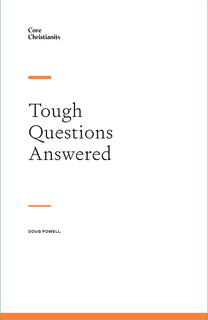At its core, the offer of salvation is liberation from slavery to sin and its consequences. That’s the symbolic meaning of the Exodus—the Jews coming out of slavery. That event is celebrated in the Passover, which is when Jesus was crucified to set all who would believe in him free from slavery. So the assumption is that slavery—to both sin and to earthly powers—is bad.
Yet, at the same time, the New Testament characterizes devotion and commitment to the faith as being a slave to the gospel. Not only is this metaphorical, drawing from a common cultural practice of the time, but the Greek word translated as slave can also be translated servant. Although there are important differences between slavery in the Roman Empire of the New Testament and the kind of slavery practiced in the British Empire and America, those distinctions don’t exclude the abuse of human beings.
The problem skeptics have is with passages that address slavery. Slaves are owned by several heroes in the Old Testament. Despite having rights that protected them, and despite being freed after a certain number of years, slavery was a part of Israelite culture. In the New Testament, Jesus mentions slaves/servants in his parables. Paul mentions the issue several times in his letters, and one directly focuses on it. So isn’t their lack of a clear condemnation of slavery a tacit approval of it?
When we read the Bible, we have to be able to discern the difference between prescription and description. Just because something is described in Scripture doesn’t mean that’s the way it should be. For example, Solomon (as well as others in the Old Testament) had many wives. Does that mean the Bible endorses polygamy? No. The whole of Scripture is clear on how marriage should look despite the abuses that are sometimes described.
The same can be said of slavery in Scripture. Just because it’s acknowledged and described doesn’t mean that slavery is morally acceptable. If the whole of biblical teaching is considered, it’s clear that slavery is contrary to God’s plan. Human beings were made in God’s image. That’s the one common denominator that defies time, place, and culture. That’s why Paul (a purveyor of slavery, according to skeptics) wrote that we are one in Christ—no male or female, no Jew or Greek, and no slave or freeman. During the end times described in Revelation 18, when Babylon is judged, slave traders (part of the group of evil merchants aligned with Babylon) will weep and mourn.
More specifically, what exactly does Paul say to Philemon? Paul is writing from prison to the owner of a runaway slave. The slave, Onesimus, received the gospel from Paul and became a believer. And Paul is sending Onesimus back to his owner, Philemon, who himself is a Christian. Instead of overtly condemning slavery, Paul asks that Philemon receive Onesimus back as a brother in Christ. He doesn’t deny his ownership in that system, but he does appeal for an uncommonly gracious treatment that—by example—actually undermines the system. If Paul were truly endorsing slavery, he wouldn’t have appealed to Philemon on behalf of Onesimus. The appeal itself (which is the entirety of the book) is contrary to the status quo of the slavery of the day.
This is an excerpt from our Core booklet, Tough Questions Answered. Request your free copy here.






